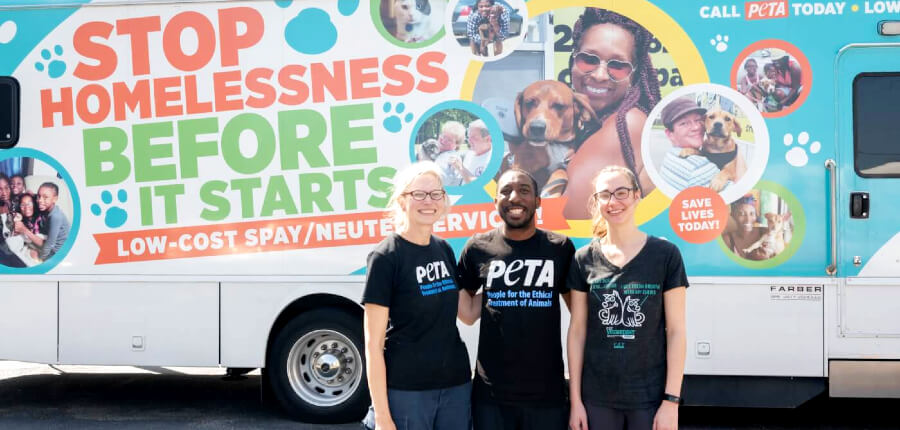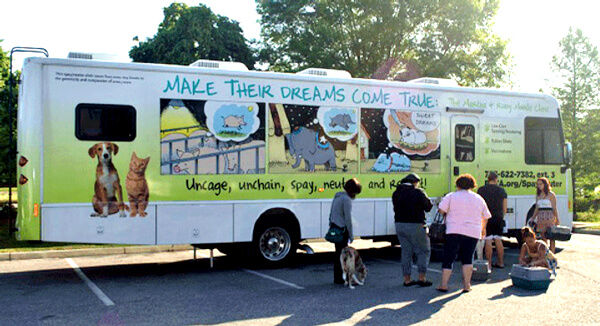Spay/neuter services weren’t spared when COVID-19 forced a nationwide lockdown. A recent study published in the journal Frontiers in Veterinary Science found that the pandemic has triggered a dramatic reduction in the number of spay/neuter surgeries performed: a deficit of nearly 3 million since March 2020. But the novel coronavirus didn’t slow down the lifesaving work of PETA’s mobile clinics. While other clinics were closed, we kept going strong for animals!
In 2021 alone, PETA sterilized more than 13,000 animals. These surgeries are vital to ending the companion animal overpopulation and homelessness crises through prevention—but spaying and neutering also improves the overall well-being of our animal companions. Neutering males reduces their risk of developing prostate cancer, prevents testicular cancer, and makes them less inclined to roam and fight. When females are spayed, their chances of developing mammary cancer are reduced, the risk of life-threatening uterine and other infections is eliminated, and they’re spared the stress and discomfort of being in heat.
When PETA’s clinics roll into underprivileged communities—as they’ve done for more than 20 years—they also treat flea and parasite afflictions, eye infections, skin conditions, and painful, sometimes life-threatening matted fur. When guardians don’t have access to a vehicle, PETA offers to take their animal companions to the clinics and bring them home—free of charge. And no one is ever denied any of these essential services, even if they’re penniless.
Help Keep PETA’s Mobile Clinics Division Rolling—Donate Today







